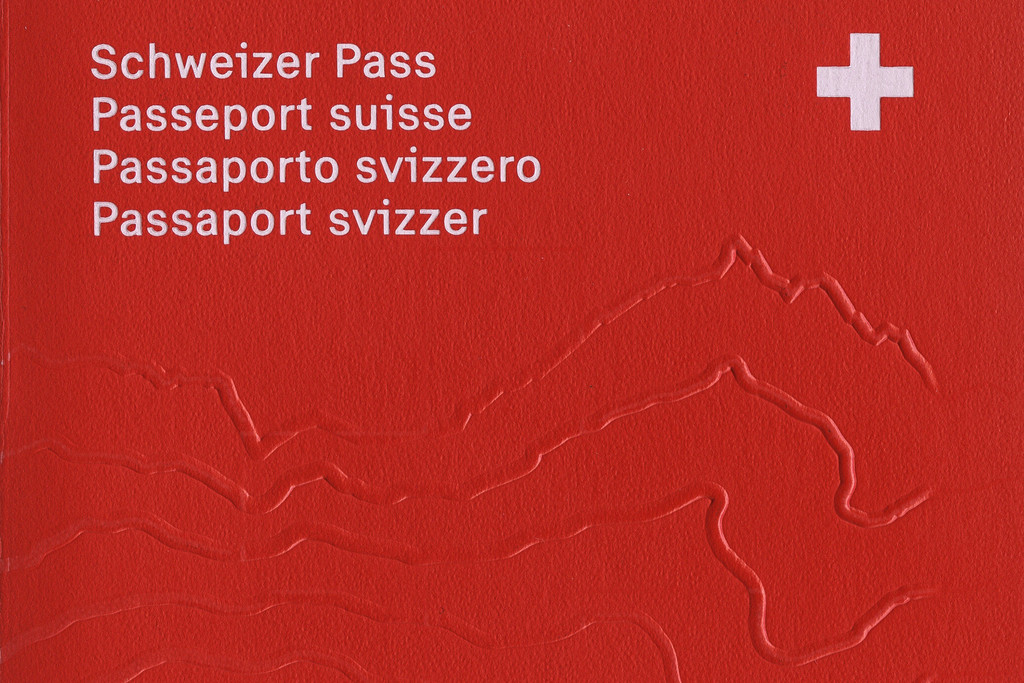
Votes and Elections

Changes to OASI – what these mean for the Swiss Abroad
Aus dem Bundeshaus

Votes and Elections

How can I acquire Swiss nationality from outside the country?

Elections and votes

Swiss culture on the international stage
![[Translate to en:]](/fileadmin/_processed_/7/d/csm_bundeshaus-by-thomas_c156edfbe4.jpg)

Are you travelling or living abroad? Or spending your retirement in the sun? Or maybe visiting remote areas on your round-the-world trip? The Federal Department of Foreign Affairs is there to support you in times of trouble – provided you have done everything that can reasonably be expected of you to avoid problems.
Amongst the tasks assigned to the Federal Department of Foreign Affairs (FDFA), one of the main responsibilities is the provision of support to Swiss citizens travelling or living abroad. With almost 800,000 Swiss Abroad and millions of trips made outside our borders every year, the Swiss consular representations are called upon to assist our fellow citizens on a daily basis. This role is partly administrative, similar to that of a municipal administration, but it also concerns support relating to difficulties or situations which require special protection.
The principle rooted in the Federal Constitution that “all individuals shall take responsibility for themselves” [Art. 6 – Federal Constitution of the Swiss Confederation] finds its corollary in the provisions governing consular work: “every individual shall exercise personal responsibility when planning or undertaking a stay abroad or when working abroad” [Art. 5 – Federal Act on Swiss Persons and Institutions Abroad]. This means that careless or reckless behaviour and the absence of appropriate preparation will result in the limitation of access to the services or protection available. According to the principle of subsidiarity, which also governs questions of consular protection, action from the FDFA can only be envisaged in cases where a person cannot find any means to help themselves. However, there is no entitlement to FDFA assistance.
It is therefore the responsibility of each Swiss citizen abroad to do everything necessary to avoid finding themselves in a difficult situation and, should they find themselves in difficulty, to look for solutions themselves. At the same time, the FDFA does provide a number of tools to Swiss citizens.
For (future) Swiss Abroad, the first thing to do is register with the relevant representation. This registration is a prerequisite for inclusion in the register of the Swiss Abroad and access to consular services. Whether following arrival or during the preparation stages, it is advisable to consult the large amount of information and advice published on the FDFA website. This information, which can be accessed directly from the FDFA homepage (under the heading Living and working abroad > Preparations for a stay abroad, emigration and repatriation), concerns the different steps of emigration or a return to Switzerland and provides a great deal of helpful advice.
For travellers, it is necessary to consult the information for travellers and to register their trip on the Travel Admin system, via the mobile or web application, and to respect the recommendations made there. The Travel Admin application also contains a lot of useful information for preparing a trip, in the form of checklists, complemented by the FDFA website (heading Travel advice & representations). Where necessary, and if the principles of individual responsibility and subsidiarity have been properly respected, support can be provided by the FDFA, individually or collectively, as demonstrated through the major repatriation action in spring 2020 in the context of the Covid-19 crisis.

As the central contact point for all consular matters, the FDFA is an hand to advise and assist you every day around the clock via the FDFA Helpline, providing you with various consular services via a worldwide representation network that nurtures relations with the Swiss expatriate community and encourages mutual interaction. The FDFA publishes important information such as travel advice via the usual communication channels and the Travel Ad min app. And should you ever find yourself in difficulty, the FOFA can offer consular protection.

Be aware: the Swiss Abroad Act [SM] is based an the key principle of individual responsibility, which is also enshrined in the Federal Constitution of the Swiss Confederation. Therefore, responsibility for planning and spending a period abroad or pursuing an activity abroad lies with the individual concerned. This does not mean the federal government will abandon any of its citizens who get into difficulty abroad. However, its support is subsidiary and therefore will only apply if an individual has previously exhausted all means of helping themselves.

According to the SM, the federal government may assist natural persons and legal entities abroad if such parties are unable or cannot be reasonably expected to safeguard their interests independently or with the help of third parties. The federal governmenfs expectation therefore is that each and every individual will assume personal responsibility when planning and spending a period abroad or pursuing an activity abroad, be weil informed, act in a risk-appropriate, lawful manner, and try to overcome any difficulties independently or with the help of third parties.

In certain cases, the federal government can prevent Swiss Abroad from falling into situations of need and provide them with welfare assistance. lt can also provide Swiss nationals abroad with consular protection. However, welfare assistance and consular protection are only provided an a subsidiary basis, i.e. the federal government will only help parties who are unable to support themselves independently or with help from private or public sources, or who are unable or cannot be reasonably expected to safeguard their interests independently or with the help of third parties.

According to the SM, there is no legal entitlement to consular protection, even when citizens assume individual responsibility and the principle of subsidiarity is maintained. The federal government may therefore refuse or limit assistance, in particular if it would put others in danger, the persons concerned have acted negligently or abused assistance in the past. or there is a risk that it could be detrimental to the federal governmenfs foreign policy interests. However, this does not apply in cases where there is a threat to the life or health of the persons concerned.

Persons who have used consular services must reimburse the costs as weil as any fees to the federal government. lndividuals are also liable for cost reimbursement if the federal government performs a service without being requested to da so by the persons concerned, but in accordance with their presumed wishes and interests. Fees or cost reimbursement may be waived in part or in full in case of need or for other good reason. However, the federal government must take account of whether the persons concerned have acted negligently.

But be aware that this support is not absolute and there is no entitlement to it. We would like to remind you of the principles of individual responsibility and subsidiarity within the consular domain.
Comments